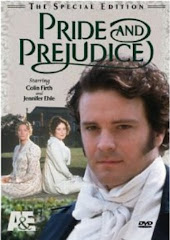JANE AUSTEN'S ENGLAND
Jane Austen's major novels, including Pride and Prejudice, were all composed within a short period of about twenty years. Those twenty years (1795-1815) also mark a period in history when England was at the height of its power. England stood as the bulwark against French revolutionary extremism and against Napoleonic imperialism. The dates Austen was writing almost exactly coincide with the great English military victories over Napoleon and the French: the Battle of the Nile, in which Admiral Nelson crippled the French Mediterranean fleet, and the battle of Waterloo, in which Lord Wellington and his German allies defeated Napoleon decisively and sent him into exile. However, so secure in their righteousness were the English middle and upper classes—the "landed gentry" featured in Austen's works—that these historical events impact Pride and Prejudice very little.
THE FRENCH REVOLUTION AND NAPOLEONIC WARS
The period from 1789 to 1799 marks the time of the French Revolution, while the period from 1799 to 1815 marks the ascendancy of Napoleon— periods of almost constant social change and upheaval. In England, the same periods were times of conservative reaction, in which society changed very little. The British government, led by Prime Minister William Pitt, maintained a strict control over any ideas or opinions that seemed to support the revolution in France. Pitt's government suspended the right of habeas corpus, giving themselves the power to imprison people for an indefinite time without trial. It also passed laws against public criticism of government policies, and suppressed working-class trade unions. At the same time, the Industrial Revolution permanently changed the British economy. It provided the money Pitt's government needed to oppose Napoleon. At the same time, it also created a large wealthy class and an even larger middle class. These are the people that Jane Austen depicts in Pride and Prejudice, the "landed gentry" who have earned their property, not by inheriting it from their aristocratic ancestors, but by purchasing it with their new wealth. They have few of the manners and graces of the aristocracy and, like the Collinses in Pride and Prejudice, are primarily concerned with their own futures in their own little worlds.
Unlike other Romantic-era writers, such as William Wordsworth and Samuel Taylor Coleridge Austen's works are very little impacted by the French Revolution and revolutionary rhetoric. Members of Austen's own family served in the war against Bonaparte and the French; two of her brothers became admirals in the Royal Navy. The only hint of war and military behavior in Pride and Prejudice, however, lies in the continued presence of the British soldiers in Meryton, near the Bennet estate at Longbourn. The soldiers include George Wickham, who later elopes with Lydia Bennet, disgracing the family. In the world of Pride and Prejudice, the soldiers are present only to give the younger Bennet daughters men in uniforms to chase after. Their world is limited to their own home, those of their friends and neighbors, a few major resort towns, and, far off, the city of London. There is no hint of the revolutionary affairs going on just across the English Channel in France.
ENGLISH REGENCY SOCIETY
On the other hand, contemporary English society is a preoccupation of Pride and Prejudice. At the time the novel was published, King George III had been struck down by the periodic madness (now suspected to be caused by the metabolic disease porphyria) that plagued his final years. The powers he was no longer capable of using were placed in the hands of his son the Prince Regent, later George IV. The Prince Regent was widely known as a man of dissolute morals, and his example was followed by many of society's leading figures. Young men regularly went to universities not to learn, but to see and be seen, to drink, gamble, race horses, and spend money. Perhaps the greatest example of this type in Pride and Prejudice is the unprincipled George Wickham, who seduces sixteen-year-old Lydia Bennet. Lydia for her part also participates willingly in Regency culture; her thoughts are not for her family's disgrace, but about the handsomeness of her husband and the jealousy of her sisters.
Most "respectable" middle- and upper-class figures, such as Elizabeth Bennet and Fitzwilliam Darcy, strongly disapproved of the immorality of Regency culture. But they did participate in the fashions of the time, influenced by French styles (even though France was at war with England). During the period of the Directory and the Consulate in France (from 1794-1804), styles were influenced by the costumes of the Roman Republic. The elaborate hairstyles and dresses that had characterized the French aristocracy before the Revolution were discarded for simpler costumes. Women, including Elizabeth Bennet, would have worn a simple dress that resembled a modern nightgown. Loose and flowing, it was secured by a ribbon tied just below the breasts. Darcy for his part would have worn a civilian costume of tight breeches, a ruffled shirt with a carefully folded neckcloth, and a high-collared jacket. Even though these costumes were in part a reaction to the excesses of early eighteenth-century dress, they became themselves quite elaborate as the century progressed, sparked by the Prince Regent himself and his friend, the impeccable dresser Beau Brummel. Brummel's mystique, known as "dandyism," expressed in clothing the same idleness and effortless command of a situation that characterizes many of Austen's heroes and heroines.
Monday, June 28, 2010
Subscribe to:
Post Comments (Atom)





No comments:
Post a Comment
Note: Only a member of this blog may post a comment.